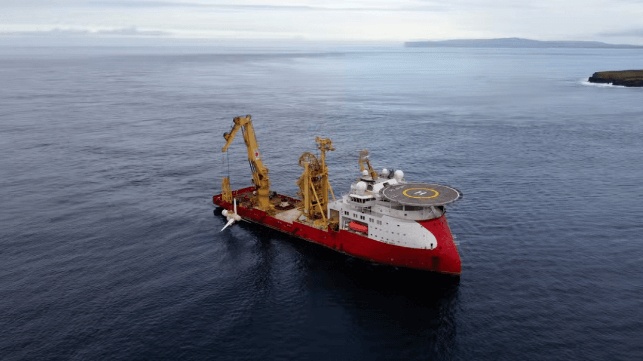April 18 NEC Energy News
¶ “Tidal Power Is Set For A Commercial Breakthrough In The UK” • Tidal energy has long been lurking in the UK’s renewable energy arsenal, outshone by its wind and solar counterparts due in part to early issues with technology readiness and high costs. But recent research shows it could provide 11% of the electricity needs of the UK. [The Maritime Executive]

¶ “The Pentagon Is Sending A New Nuclear Design To Idaho” • The Pentagon announced that a new nuclear design is going to be assembled in the Mountain West. It is to be a mobile nuclear microreactor that can travel in up to four shipping containers. The Pentagon is still deciding between designs from two separate East Coast teams. [Aspen Public Radio]
¶ “This Bat Appreciation Day, NREL Shines Light (Literally) On Bat Interactions With Wind Energy” • Bat Appreciation Day was April 17. With the US DOE’s Wind Energy Technologies Office’s support, National Renewable Energy Laboratory researchers are working hard on solutions that protect bats and other creatures near wind installations. [CleanTechnica]
¶ “The French Town Where The Lighting Is Alive” • French start-up Glowee is making bioluminescent lights. Unlike standard streetlamps, which emit a harsh glare and need to be hooked up to the electricity grid, these otherworldly lights are powered by living organisms. Their light has a very soft quality. They will be installed in public places as a test. [BBC]

¶ “How Climate Change Is Disrupting The Global Supply Chain” • The COVID pandemic has rightly received most of the blame for global supply chain upheavals in the last two years. But the less publicized threat to supply chains from climate change poses a far more serious threat and is already being felt, according to scholars and experts. [GreenBiz]
¶ “Climate Toll On US Military Bases: Damaged Roads, Sunken Runways” • US military bases in the Arctic and sub-Arctic are failing to prepare for long-term climate change as required, even as soaring temperatures and melting ice already are cracking base runways and roads and making flood risks worse, the Pentagon’s watchdog office said. [India Today]
For more news, please visit geoharvey – Daily News about Energy and Climate Change.
